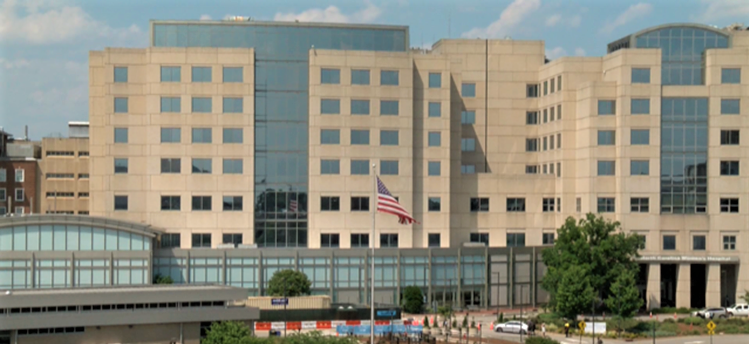The University of North Carolina Children’s Hospital has established its reputation as a prominent and trustworthy pediatric facility in the US since it opened in 1991. A part of the University of North Carolina medical center in Chapel Hill, the hospital recently made headlines for all of the wrong reasons.
An investigation by The New York Times shows that patients with cardiac conditions have been suffering complications, and in some cases dying, at the hospital at a significantly higher rate than the national average in 2016 and 2017. Issues started to come to light in March 2016 when even low-risk cardiac surgery patients experienced post-surgery complications. The cardiac complications escalated even further during the same month, as death cases were also registered.
The Times was given secret recordings of cardiologist staff meetings, which give first-hand accounts of the concerns of the medical team about the quality and effectiveness of the program. The recording highlights the ethical dilemma’s the doctors faced as they expressed hesitation about referring patients to the in-house heart surgery team, with several noting they would be unwilling to allow their own children to undergo surgery at the facility. The doctors were advised to follow their consciences but were also told that if the hospital saw a significant reduction in surgical procedures that staffing may be cut. This created a catch-22 as the doctors obviously did not want to lose their jobs, but also did not want to put patients at risk
An Overview of the UNC Pediatric Cardiac Cases

In March 2016, a newborn died after heart surgery in North Carolina Children’s Hospital. An important supporting valve in the heart appeared to have been damaged during the surgical procedure. During the very same month, two children that went in for low-risk surgeries experienced complications rather than rapid recovery. A second death occurred in May after a baby girl had complex heart surgery.
Cardiologist began expressing their concerns at that point. In the audio recording given to The New York Times, leading surgeons expressed their concerns with the hospital’s program and discussed the ethical obligations physicians and medical institutions had. They noted that this was not a new issue and that for some time they believed the hospital was having a higher than normal rate of unfavorable results and deaths.
By the end of May 2019, North Carolina’s Secretary of Health, Dr. Mandy Cohen, announced that an investigation would be launched at UNC Children’s Hospital. A team from the state division of health service regulation is anticipated to work with federal regulators on the investigation.
Doctors still have no idea about what went wrong at the hospital. In the audio recording publicized by The New York Times, they make hypotheses based on a wide range of criteria – from inadequate resources, issues with the chief surgeon, and hospital policies that enabled taking on patients that the medical institution was not equipped to help.
As per the recording, the hospital’s chief pediatric cardiologist Dr. Tim Hoffman said in 2016 “it’s a nightmare right now…We are in crisis and everyone is aware of that.”
Medical Professionals vs. Administrators
The audio recording that The New York Times used in its investigative piece sheds some light on a very important dichotomy that’s typical for the operation of every medical facility.
In most institutions, medics and administrators face off against each other. While medical professionals put a lot of emphasis on the ethical obligations towards their patients, administrators usually prioritize revenue and the long-term sustainability of the facility.
In the recording, cardiologists were advised to do what their conscience says by the hospital director, Dr. Kevin Kelly. At the same time, Dr. Kelly warned cardiologists that performing fewer surgeries would be bad for the hospital and it could even lead to some of the medical professionals losing their jobs.
“If it reduces the volume of things,” he said, “I’ll just —— we’ll just reduce the number of people that we have,” Dr. Kelly was quoted as saying.
UNC Health Care did officially defend the surgical program and denied past problems. According to administrators, in 2016 a dysfunctional group of employees sowed mistrust and created cultural issues within the hospital team. According to the official administrative announcement, a different team works at the hospital today.
The announcement stated that a thorough internal investigation was carried out to assess the quality of the heart surgery program in 2016 and 2017. The results of the investigation show that criticism of the program was unsubstantiated. The New York Times, however, reported that many of the hospital physicians were unaware of the investigation taking place or of its results.
Under North Carolina’s open records law, when a request is filed, the hospital is obliged to provide data about mortality rates related to the pediatric heart surgery program. It has refused to deliver such data and as a result, The New York Times is currently suing the hospital.
Eventually, the hospital did release a limited report on pediatric cardiology mortality rates. The data is available for viewing here. While far from comprehensive, the report does suggest that the North Carolina pediatric hospital had a higher death rate than nearly all of the 82 medical institutions that do public reporting.
Why Investigating Heart Surgery Programs Is Difficult
As already mentioned, doctors have no idea about what has gone wrong during heart surgeries. Investigating surgical programs is a complex endeavor. There are many elements to consider and many possible causes of patient complications.
Surgeons, anesthesiologists, intensive care doctors, and support staff all work together to make sure that surgical procedures and post-surgical recovery go smoothly. A mistake during any part of the process could contribute to issues like recovery complications and even death.
It’s also impossible to tell whether the patients treated in North Carolina would have had a different outcome at another hospital. Pediatric heart surgeries can be very tricky and complicated. Deaths and complicated recoveries are often inevitable. Prematurity and genetic abnormalities, for example, are two of the factors that could easily contribute to complications or death.
According to The New York Times, doctors at the pediatric hospital had long been trying to review mortality data and reach some conclusions on the basis of this information. The mortality reports, however, have been kept under lock.
Most pediatric hospitals in the US that perform cardiac surgeries share their mortality data publicly. UNC is one of the few exceptions.
Cardiologists also expressed concern about the performance of the chief pediatric heart surgeon, Dr. Michael Mill. In one case from 2016, he refused to come to work on a weekend to perform a heart transplant surgery. The reasons for the failure to show up were unclear and it left doctors worrying about the competence of the management team.
Hospital administrators have recognized the concerns of the medical professionals but they’ve made it clear that a quick fix was not possible.
“I don’t know how long it’s going to take to do this. A lot of these things that get vetted with large groups of people, the final decisions of what we’re going to do happen behind closed doors in offices,” Dr. Kelly, the head of the children’s hospital said.

Concerns about the Quality of Pediatric Cardiology Programs in the US
The latest case from North Carolina once again highlights concerns about the quality of pediatric cardiology programs in the United States.
Nearly 40,000 babies are born with heart defects in the US every single year. Of these children, nearly 10,000 will need surgery or another medical cardiology procedure before they reach their first birthday.
Reports show that performing high numbers of pediatric cardiac surgeries are correlated with higher success levels and better outcomes for patients. A proliferation of medical institutions that offer such surgeries, however, makes it difficult for an individual hospital to reach those sufficient numbers.
The North Carolina pediatric hospital does approximately 100 to 150 pediatric cardiac surgeries per year, which is a relatively small number. This has two effects. First, it does not allow the hospital to ensure consistently favorable outcomes for young patients. It also causes the data to not be statistically significant, making it more difficult for systemic issues to be exposed.
It’s easy to see why a low surgery volume is problematic. Surgeons and medical professionals who don’t perform such complex procedures on a regular basis could be lacking in experience and technique. In addition, the hospital may have limited resources to ensure the best possible patient recovery. The hospital may not have a dedicated surgical team or may lack dedicated recovery units for pediatric cardiology patients. In the case of UNC Children’s Hospital, both of these deficiencies existed.
In the last decade alone, five pediatric heart surgery programs in the US were suspended or discontinued due to poor performance. Even reputable medical institutions haven’t been spared – a Florida institution run by the Johns Hopkins medical system had to stop operations in 2018.
Apart from issuing the official statements quoted above, the UNC administration has refused to talk to media or share additional details on the situation.
The truth of the matter is that most of the pediatric cardiologists working there in 2016 and 2017 were concerned about the quality of the program. Many of these cardiologists aren’t working at UNC today.
It’s still too early to tell what the state investigation is going to find and whether a tangible cause of high mortality will be identified at all.
Call Ted A. Greve & Associates if You Believe Your Family Has Been Affected
Parents who have gone through the hell of pediatric heart surgery, however, should seek assistance. If your child underwent pediatric heart surgery at the UNC Children’s’ Hospital and suffered unforeseen complications or death, you should speak to an experienced lawyer about your concerns.
The law firm of Ted A. Greve & Associates provides professional and personalized assistance in personal injury, medical malpractice, and wrongful death cases. The team consists of experienced lawyers, some of which are also doctors, paralegals and licensed insurance adjusters. Since the team has a unique and comprehensive skill set, even the most challenging of cases are resolved in a timely manner.
Call Ted A. Greve & Associates today or click the Free Consultation bar in our website’s header if your family has been affected. Everyone receives a complimentary preliminary consultation and we are available 24 hours a day, 7 days a week.


